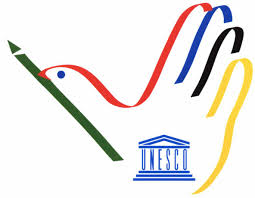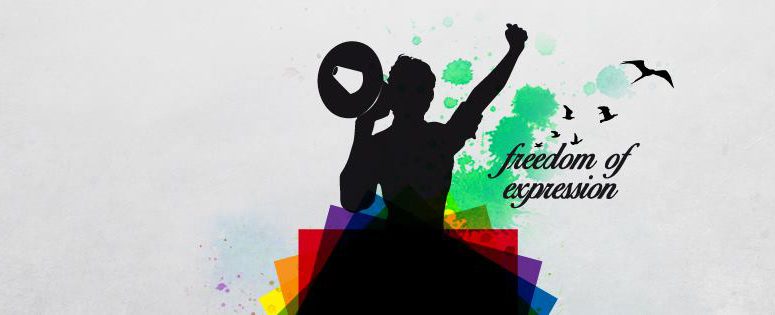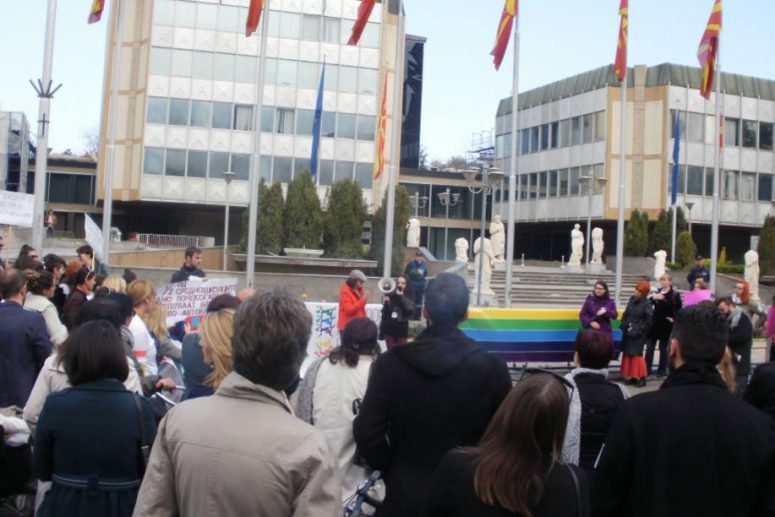Two weeks separate World Press Freedom Day, May 3rd, and the International Day Against Homophobia and Transphobia, May 17th. This is a coincidence, but a highly symbolic one.
No doubt that all oppressive regimes and their supporters, religious or lay, will have a very busy month of May, waging their battles against democracy. Recent developments in Eastern Europe, and especially Russia, have shed a very bright light on how much free media and LGBT groups share the same enemies.
Which, to be honest, is of little surprise. Of course, no surprise comes from the fact that opponents of democracy will oppose a free press. Lesson 1 is that Freedom of expression, and thus a free press, is at the very heart of democracy. But what has democracy got to do with sexuality and gender?
Well, lesson 2, or maybe a bit further down the “curriculum”, is that democracy and diversity are inseparable. Democracy, as many tend to forget, is not the dictatorship of the majority, it is a system that allows to define and enforce a society’s common interest, which includes the protection of minorities and the promotion of diversity. At least this is the way we at the IDAHO Committee see this common interest.
Diversity is of course the diversity of opinions, which Press Freedom personifies. But democracy is also made of other diversities. The International Day Against Homophobia, Biphobia, Lesbophobia, Transphobia and all other forms of exclusion of minority groups, was created to defend the diversity in expressions of sexualities and gender.
Since the beginning, May 17th was conceived as one of the many bricks in the “democracy wall”.
And, of course, Freedom of Expression is the very cement that holds the democracy wall together. It’s the right that makes all the others possible. Like teaching is the profession that makes all the others possible. Freedom of Expression, which includes the freedom to receive and share information, is not one right amongst others. It’s the essence of the exercise of Human Rights.
And Freedom of Expression is but an empty slogan if there is not a free press to make it exist.
Sexual and gender minorities are unfortunately well placed to know this.
In China, amongst many other States, all mentions of variant sexual orientations or gender expressions are legally considered pornography, and cannot be aired on public television or other publicly accessible channels. Websites are regularly blocked.
The Pakistani government banned Queer Pakistan, the country’s only openly gay site, only a few months after its launch. The Pakistan Telecommunication Authority (PTA), the organization responsible for censoring the internet in Pakistan had similarly banned thousands of websites such as YouTube and other sites that the organization considered blasphemous or pornographic.
Russia, as mentioned, attracted widespread critique by passing a law earlier this year that bans all public expression of non “traditional” expressions of sexuality, widely affecting the freedom of the press to cover these issues.
These examples illustrate well how diversities in the expression of sexuality and gender are conceived by authoritarian regimes and entities as much as a threat as expressions of diversities in opinions, religions, languages, and many other forms of the construction of individual personalities, with capacity for critical thinking.
This year, activists from sexual and gender minority groups around the world wanted to pay a special tribute to Freedom of Expression, and have made this the core ‘focus issue’ of the global mobilizations. No doubt that on May 3rd, many voices from sexual and gender minorities will rise to defend the freedom of the press.



